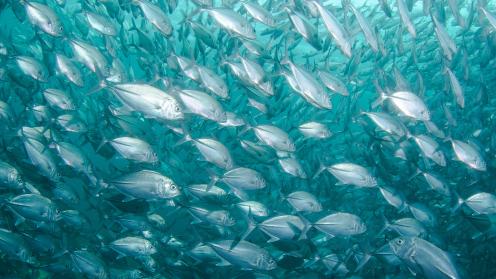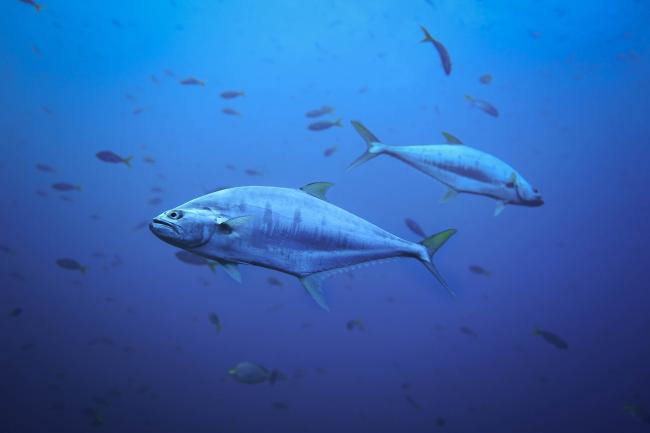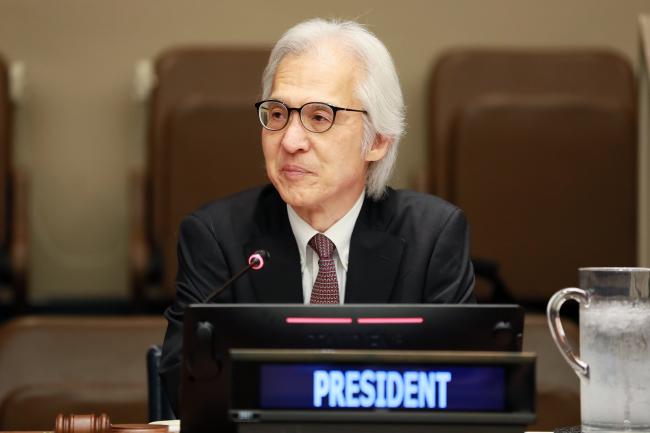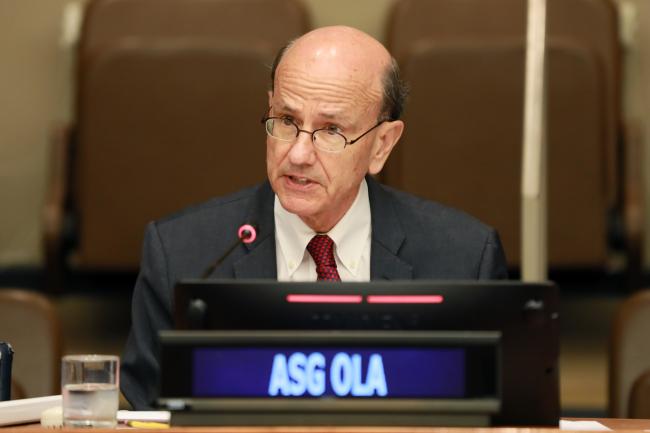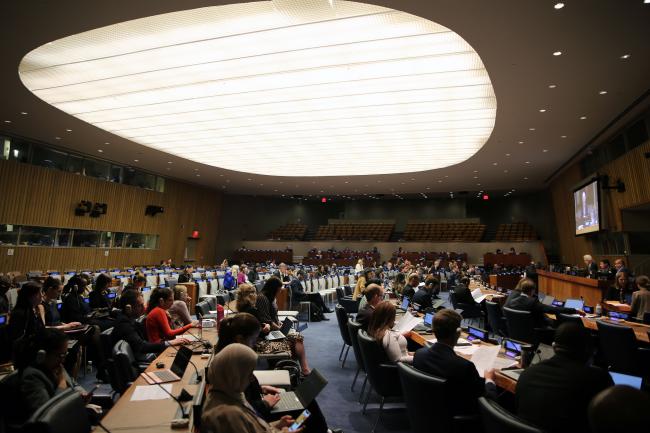Are humanity’s efforts to conserve the Ocean’s health and preserve the vitality of fish stocks successful? And if not, what are the necessary measures to ensure a sustainable future? These are the questions that delegates will need to answer at the Review Conference on the Agreement for the Implementation of the Provisions of the UN Convention on the Law of the Sea (UNCLOS) relating to the Conservation and Management of Straddling Fish Stocks and Highly Migratory Fish Stocks, also known as the UN Fish Stocks Agreement (UNFSA).
Want to dig deeper? Read the full Earth Negotiations Bulletin daily report.
During the opening day of the Review Conference, President Joji Morishita (Japan) highlighted important recent developments, such as: the World Trade Organization (WTO) agreement on Fisheries Subsidies; the adoption of the Kunming-Montreal Global Biodiversity Framework under the Convention on Biological Diversity; outcomes from the 19th meeting of the Conference of the Parties (COP) of the Convention on International Trade in Endangered Species of Wild Fauna and Flora (CITES), including the listing of new shark species in its appendices; and the agreement on an international legally binding instrument on the conservation and sustainable use of biological diversity in areas beyond national jurisdiction (BBNJ Agreement). He stressed that regional fisheries management organizations (RFMOs) are expected to play a key coordination role in the BBNJ framework. He further underscored the challenges posed by climate change and illegal, unreported, and unregulated (IUU) fishing.
Stephen Mathias, Assistant Secretary-General for Legal Affairs, on behalf of the UN Secretary-General António Guterres, highlighted fisheries-related benefits for sustainable development, including for food security, economic prosperity, employment, poverty alleviation, and livelihoods, in particular for developing States. He noted that the overall level of UNFSA implementation has improved, albeit unevenly, as some States and RFMOs proceeded more expeditiously than others.
In opening statements, many parties stressed the need to focus on IUU fishing and address data gaps. They called for applying ecosystem-based approaches in the management of fish stocks and for enhancing bilateral, regional, and multilateral collaboration for sustainable fisheries management.
Delegates listened to reports from the 13th - 16th rounds of informal consultations. The 13th round focused on the science-policy interface. The 14th round discussed performance reviews of RFMOs and relevant arrangements. The 15th round addressed implementation of an ecosystem approach to fisheries management and dedicated one day to a preparatory meeting for the Resumed Review Conference. The 16th round served primarily as a preparatory meeting for the Resumed Review Conference.
In the afternoon, delegates addressed the agenda item on the assessment of the effectiveness of the agreement, “the substance of our discussions” in the words of President Morishita. Delegates reviewed implementation of the recommendations adopted at the 2016 Review Conference.
On conservation and management of fish stocks, many delegates highlighted the role of accurate data to assess fish stocks. Others emphasized the usefulness of the precautionary and ecosystem approaches to deal with climate change, biodiversity, and ocean acidification challenges; the significance of area-based management tools, including marine protected areas; the BBNJ Agreement as a mechanism for coordination; the need to address gaps in unregulated areas; and the importance of the World Trade Organization agreement on fisheries subsidies as well as the Agreement to prevent Unregulated High Seas Fisheries in the central Arctic Ocean.
On international cooperation and non-members, many delegates focused on the performance reviews by RFMOs, with some stressing that there is room for further improvement. Some reflected on joint RFMO meetings under the Kobe process and highlighted areas of cooperation between RFMOs covering the same area or the same species, including cross-listing of IUU vessels across RFMOs. Delegates further discussed flag states’ responsibilities and objection procedures across RFMOs.
On monitoring, control, and surveillance, and compliance and enforcement, delegates highlighted the FAO Voluntary Guidelines for Flag State Performance to combat IUU fishing and its Voluntary Guidelines for Transshipment to inhibit IUU fishing. Many delegates lauded the coming into force of the Agreement on Port State Measures, the first binding international agreement on IUU fishing.
At lunchtime, a side event organized by UN Division for Ocean Affairs and the Law of the Sea (UNDOALOS), highlighted the requirements under UNFSA Part VII (requirements of developing states), offering examples of capacity-building efforts, which can strengthen fisheries management.
To receive free coverage of global environmental events delivered to your inbox, subscribe to the ENB Update newsletter.
All ENB photos are free to use with attribution. For the Resumed Review Conference on the UN Fish Stocks Agreement, please use: Photo by IISD/ENB | Mike Muzurakis
